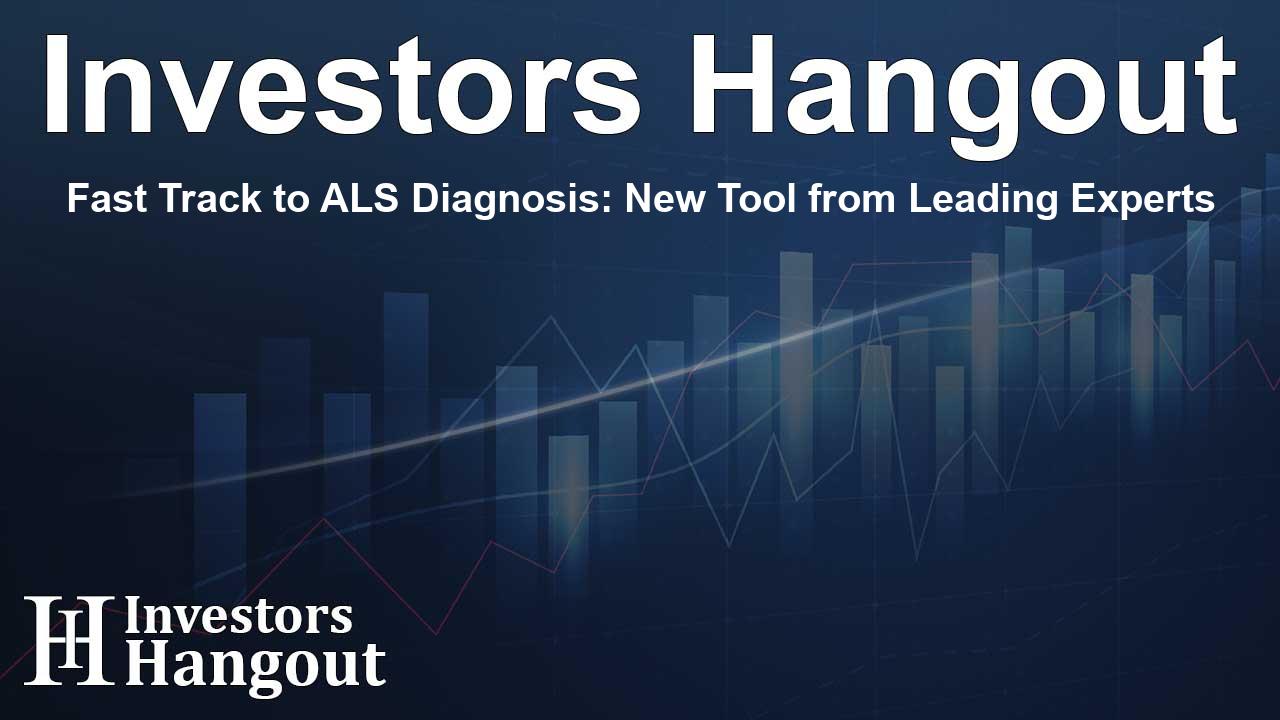Fast Track to ALS Diagnosis: New Tool from Leading Experts

Revolutionizing ALS Diagnosis
Research led by the ALS Association has unveiled a critical finding: specialists diagnose amyotrophic lateral sclerosis (ALS) nearly twice as fast as general neurologists. This finding highlights a significant gap in timely diagnosis, which can often delay essential treatments and patient care.
The study's results show that ALS or neuromuscular specialists take an average of 9.6 months to diagnose a patient from the initial consult, in stark contrast to the 16.7 months taken by non-specialist neurologists. These delays in diagnosis are alarming as ALS is a progressive disease, with most patients surviving only 2 to 5 years post-diagnosis.
Understanding the Impact of Delay
Patients often endure unnecessary tests and potential misdiagnoses in this waiting period. The research indicates that during the year leading to diagnosis, there is a noticeable increase in the billing for spine or neurosurgical evaluations, suggesting that many patients are receiving treatments for conditions they do not have.
The findings imply that general neurologists may overlook early signs of ALS or misinterpret the symptoms, contributing to longer wait times for patients. As a result, affected individuals might miss out on multidisciplinary care, which is critical to improving both survival rates and quality of life.
The Importance of Early Diagnosis
“Diagnosing ALS is complex because there is no definitive test; symptoms can mimic other neurological conditions,” states Dr. Suma Babu, a senior author of the study and an assistant professor at Harvard Medical School. The consequences of delaying diagnosis can be severe, preventing patients from accessing vital treatments and support systems sooner.
The study emphasizes the urgency for better diagnostic recognition among general neurologists. Implementing tools such as a new clinical guide, known as thinkALS, can streamline the process for less experienced clinicians.
ThinkALS: A Game Changer for ALS Diagnostics
thinkALS was developed by a dedicated group of neurologists and ALS specialists aiming to enhance the referral process for patients suspected of having ALS. This comprehensive guide is intended for use by non-ALS specialists, providing them with clear criteria and pathways to refer patients to ALS clinics quickly.
Dr. Kuldip Dave, also a co-author on the study, emphasized that faster diagnosis can lead to quicker access to care. “Getting people to a diagnosis sooner is vital for making ALS a more manageable condition,” he stated. The sooner patients start receiving care, the better their chances of maintaining independence and improving their quality of life.
Future Implications for ALS Care
Implementing thinkALS could revolutionize how ALS is diagnosed and treated. By educating general neurologists and providing them with the tools to better recognize ALS, the hope is to create a more informed and responsive medical community.
The ALS Association stands at the forefront of this initiative, promoting research and improving care for individuals affected by this debilitating disease. Their commitment to facilitating quicker diagnoses and enhancing multidisciplinary care can pave the way for a brighter future for ALS patients.
About the ALS Association
The ALS Association is the leading organization dedicated to supporting individuals with ALS and their families. They play a key role in funding essential research, providing care and resources through a network of certified clinics, and advocating for improvements in public policy affecting those with ALS.
About ALS
Amyotrophic lateral sclerosis (ALS) is a severe progressive neurodegenerative disorder impacting nerve cells in both the brain and spinal cord. Over time, it obstructs a person's physical capabilities, including movement and speech, eventually leading to loss of respiratory function. Unfortunately, treatment options are limited, highlighting an urgent need for innovative therapies to manage this life-altering condition.
Frequently Asked Questions
What is the main finding of the ALS Association's research?
The research indicates that ALS specialists can diagnose ALS approximately twice as fast as general neurologists, significantly impacting patient care.
How does thinkALS improve the diagnosis process?
ThinkALS is a clinical guide that helps non-ALS specialists recognize ALS symptoms early and efficiently refer patients to specialty clinics.
Why are delays in ALS diagnosis problematic?
Delays can lead to unnecessary treatments and hinder access to critical multidisciplinary care, affecting patient outcomes significantly.
Who conducted the research on ALS diagnosis?
The study was conducted by the ALS Association in partnership with several leading ALS clinicians and researchers.
What is the ALS Association's mission?
The ALS Association aims to provide support and resources for individuals with ALS while funding research to find effective treatments and ultimately a cure.
About The Author
Contact Ryan Hughes privately here. Or send an email with ATTN: Ryan Hughes as the subject to contact@investorshangout.com.
About Investors Hangout
Investors Hangout is a leading online stock forum for financial discussion and learning, offering a wide range of free tools and resources. It draws in traders of all levels, who exchange market knowledge, investigate trading tactics, and keep an eye on industry developments in real time. Featuring financial articles, stock message boards, quotes, charts, company profiles, and live news updates. Through cooperative learning and a wealth of informational resources, it helps users from novices creating their first portfolios to experts honing their techniques. Join Investors Hangout today: https://investorshangout.com/
The content of this article is based on factual, publicly available information and does not represent legal, financial, or investment advice. Investors Hangout does not offer financial advice, and the author is not a licensed financial advisor. Consult a qualified advisor before making any financial or investment decisions based on this article. This article should not be considered advice to purchase, sell, or hold any securities or other investments. If any of the material provided here is inaccurate, please contact us for corrections.
